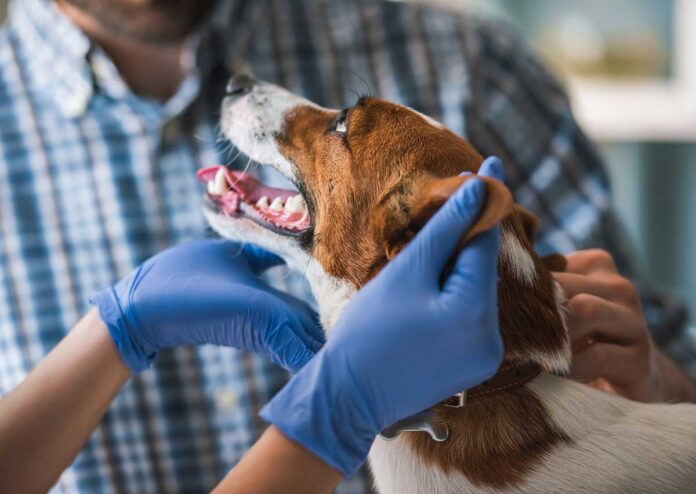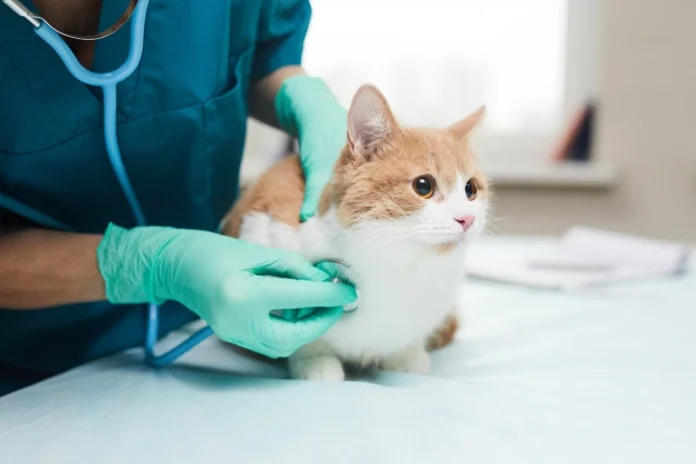Pets depend on us to keep them happy and healthy. But when something feels off, it’s not always easy to spot the problem right away. That’s why knowing the most common health concerns and how to address them is essential. Let’s dive in and get practical about how you can make sure your furry friend stays their best self.
Key Points
- Nutritional support is vital for wellness.
- Obesity leads to serious conditions but can be prevented.
- Joint and mobility issues require early care.
- Parasites and infections must be tackled immediately.
- Anxiety and age-related concerns need compassionate handling.
1. Nutritional Deficiencies – Why Supplements Can Help

Nutrition isn’t just about feeding your pet the right food—it’s about ensuring they get every essential nutrient. Pets, like us, sometimes fall short on vitamins and minerals, even with a balanced diet. Picky eaters, pets with dietary restrictions, or those recovering from illness often need extra help.
The best multivitamin for dogs is designed to fill these gaps. It’s an easy way to ensure your pet gets everything they need to feel their best. Think of it as a safety net for their overall wellness, especially for active pets or those with specific needs.
2. Obesity – Managing Weight to Avoid Bigger Issues
Obesity isn’t just a cosmetic concern—it directly impacts their quality of life. Excess weight puts strain on joints, slows them down, and increases the risk of conditions like diabetes or heart trouble. Overeating or giving too many treats are common culprits, but inactivity plays a role too.
Start by measuring their portions carefully and sticking to a feeding schedule. Avoid free-feeding unless absolutely necessary, and choose low-calorie treats for rewards. Don’t forget that regular exercise isn’t just good for their body—it’s a mood booster too.
Action Steps for Weight Management
- Stick to high-quality food made for their size and activity level.
- Schedule daily walks or play sessions that match their energy.
- Introduce interactive toys to encourage activity indoors.
3. Joint Pain and Mobility Issues – Support for Staying Active

Joint discomfort doesn’t just affect seniors. Pets of any age can experience stiffness or trouble moving due to injuries or genetic predispositions. If your pet is limping, avoiding stairs, or has slowed down during walks, it’s time to act.
Supplements containing glucosamine or omega fatty acids help support joint lubrication and reduce inflammation. Low-impact exercises like swimming or gentle walks on grass can maintain their range of motion without putting extra strain on their joints.
Keeping their weight in check is also crucial—extra pounds make joint issues worse. A soft bed or raised feeding bowls can reduce discomfort during rest or meals.
4. Skin Allergies – Addressing the Itch
Constant scratching or licking isn’t just annoying for them—it can mean something deeper is wrong. Allergies caused by food sensitivities, seasonal changes, or even flea bites are common culprits. Skin redness, hot spots, or bald patches signal a need for attention.
Switching to hypoallergenic food or adding omega-3 fatty acids to their diet often improves skin health from within. Regular baths with soothing oatmeal-based shampoos can also provide relief. If you spot fleas, treat them immediately and follow up with preventative medication to stop the cycle.
5. Digestive Problems – When Stomachs Act Up

Upset stomachs are hard to miss. Vomiting, diarrhea, or loss of appetite might signal trouble. Sometimes, it’s as simple as eating spoiled food, but more serious conditions like food intolerance or infections shouldn’t be ruled out.
Consistency is key when it comes to diet. Sudden changes can throw their digestive system off balance, so introduce new food gradually. Make sure they always have access to clean water and monitor them closely for any unusual symptoms.
6. Dental Care – More Than Just Fresh Breath
Oral care is one area pet parents often overlook. But plaque and tartar buildup can lead to serious problems, including gum disease, tooth loss, or even systemic infections when bacteria spreads.
Start brushing their teeth early with pet-safe toothpaste. For those who won’t tolerate a toothbrush, dental chews or water additives can help keep their mouths clean. Regular check-ups with the vet are also vital for spotting issues before they worsen.
7. Parasite Protection – Tiny Threats with Big Consequences
Parasites like fleas, ticks, and worms are more than just an annoyance—they can lead to anemia, organ damage, or other severe conditions if left untreated. Prevention is your best bet here.
Year-round use of flea and tick medication keeps external parasites in check. Deworming tablets protect against internal ones. If your pet spends a lot of time outdoors, inspect their coat regularly and remove ticks promptly.
8. Anxiety – Helping Them Feel Secure
Pets experience stress too. Whether it’s loud noises, separation from their favorite human, or changes in routine, anxiety shows up as pacing, barking, or hiding.
Providing a safe space where they feel comfortable can make a world of difference. Calming supplements, pheromone sprays, or even behavioral training can ease their nerves. If they suffer from separation anxiety, leave a comforting item like an unwashed shirt with your scent when you’re away.
9. Ear Infections – Why Regular Cleaning Matters

Shaking their head or scratching at their ears isn’t just a quirky habit—it often signals an infection. Pets with floppy ears or those that swim frequently are especially prone to this. Trapped moisture or wax buildup is usually the cause.
Regular cleaning with a vet-recommended solution keeps their ears healthy. Avoid using cotton swabs, as they can push debris deeper. If you notice a foul smell, discharge, or redness, consult your vet immediately for treatment.
10. Senior Pet Care – Aging Gracefully
Older pets have unique needs. As they age, their energy levels dip, their senses dull, and they become more prone to conditions like arthritis or vision loss.
Keeping them comfortable starts with regular vet check-ups. Adjust their diet to include supplements for joint and brain support. Provide a soft bed and make their environment easy to navigate—think ramps instead of stairs or non-slip mats on slippery floors.
11. Preventative Vet Visits – Catching Issues Early

Even if your pet seems fine, regular vet visits are non-negotiable. Many conditions show no symptoms until they’re advanced, making early detection key. Annual blood work, dental exams, and screenings for common illnesses keep surprises at bay.
Preventative care saves you time, money, and heartbreak in the long run. Plus, your vet can guide you on specific actions based on your pet’s breed, age, or lifestyle.
12. Enrichment – Mental and Physical Wellbeing
Wellness isn’t just about avoiding illnesses—it’s about thriving. Pets need mental stimulation and physical activity to stay sharp and happy.
Rotate their toys regularly to keep them engaged. Puzzle feeders or treat-dispensing toys provide mental challenges. Daily exercise not only burns energy but strengthens the bond between you and your furry companion.
Final Thoughts
Keeping your pet healthy and happy takes consistent effort. From good nutrition to regular vet visits and a dash of extra love, prevention is always better than a cure. Address issues early, provide the care they deserve, and watch them flourish. They’re not just pets—they’re family.










